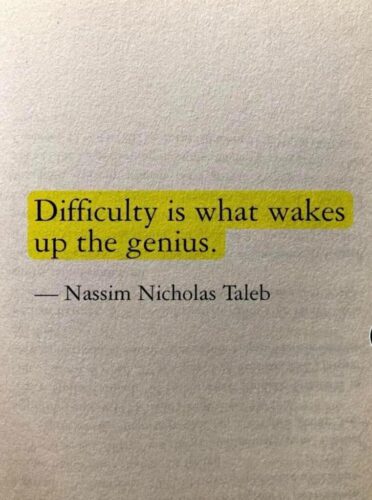In the fast-paced and often high-pressure world of business, the ability to remain calm in every situation is not just a skill but a necessity. As a leader or an aspiring boss, cultivating a serene mind can significantly impact your decision-making, team dynamics, and overall success. Let’s explore how and why training your mind to be calm is crucial in business and life.
HOW TO TRAIN YOUR MIND FOR CALMNESS
- Mindfulness and Meditation: Regular practice of mindfulness and meditation can train your brain to focus and remain calm. It helps in managing stress and improves your ability to react thoughtfully in challenging situations.
- Deep Breathing Techniques: Learning deep breathing exercises can be a quick and effective way to calm your mind. Techniques like the 4-7-8 method or diaphragmatic breathing can be done anywhere, anytime.
- Positive Visualization: Visualizing positive outcomes and peaceful scenarios can help in reducing anxiety and maintaining a calm demeanor.
- Cognitive Restructuring: Challenge and reframe negative thoughts. By changing your perspective on stressful situations, you can reduce their impact on your mental state.
- Regular Physical Exercise: Physical activity releases endorphins, which are natural mood lifters. Exercise also helps in reducing stress and improving overall mental health.

This wall art is from Weave Got Gifts
WHY CALMNESS IS KEY IN BUSINESS LEADERSHIP
- Better Decision-Making: A calm mind can assess situations more objectively and make more informed decisions.
- Effective Communication: Calmness aids in clear and effective communication, crucial in leadership and team management.
- Stress Management: Running a business involves high-stress situations. Being calm helps in managing stress, preventing burnout, and maintaining overall well-being.
- Inspiring Confidence: A leader who remains calm under pressure inspires confidence and trust in their team, fostering a positive work environment.
THE IMPORTANCE OF CALMNESS IN ACHIEVING SUCCESS
- Resilience in Adversity: Business often involves facing challenges and setbacks. A calm mind is more resilient and can navigate through tough times effectively.
- Enhanced Creativity: Calmness can foster an environment where creativity and innovation thrive.
- Building Strong Relationships: Calm leaders are better at building and maintaining strong, positive relationships with clients, partners, and employees.
- Long-term Success: Ultimately, the ability to remain calm contributes to sustained personal and professional success.
Achieving a state of calm in every situation, especially in the demanding world of business, requires dedication and practice. Let’s explore further strategies and insights into why maintaining calmness is not just beneficial but essential for business leaders and entrepreneurs.
ADVANCED STRATEGIES FOR MIND TRAINING
- Regular Mindfulness Retreats: Consider attending mindfulness retreats or workshops. These can provide deeper insights into managing your thoughts and emotions, and offer techniques for maintaining calmness.
- Journaling: Keeping a journal can be a therapeutic way to process thoughts and emotions. Reflecting on daily experiences and writing down stressors can help in identifying patterns and finding ways to remain calm in similar future situations.
- Professional Coaching: Engaging with a professional coach or a mentor who specializes in leadership and stress management can provide personalized strategies to cultivate calmness.
- Learning from Successful Leaders: Study the habits and techniques of successful business leaders who are known for their calm demeanor. Books, podcasts, and interviews can be great resources for this.
THE SCIENCE BEHIND CALMNESS AND EFFECTIVE LEADERSHIP
- Neurological Benefits: Studies have shown that calmness can lead to better cognitive functioning, including improved memory, attention, and problem-solving skills.
- Emotional Intelligence: Calm leaders tend to have higher emotional intelligence, which is crucial for understanding and managing not only one’s emotions but also those of others.
IMPLEMENTING CALMNESS IN DAY-TO-DAY BUSINESS OPERATIONS
- Mindful Meetings: Start meetings with a minute of silence or deep breathing to set a calm and focused tone.
- Calmness in Crisis Management: Practice maintaining a calm demeanor in crisis situations. This sets a positive example for your team and can lead to more effective crisis resolution.
- Encouraging Employee Wellness: Foster a work environment that values and encourages mental wellness. This can include offering meditation sessions, wellness workshops, or flexible work arrangements.
THE ROLE OF CALMNESS IN LONG-TERM BUSINESS SUCCESS
- Sustainable Growth: A calm approach to business challenges promotes sustainable growth and avoids hasty decisions that could have long-term negative impacts.
- Building a Positive Brand Image: Leaders who are known for their calm and composed nature often build a positive brand image, attracting clients, partners, and talent.
- Adaptability: Calmness enhances adaptability, a crucial trait in the ever-changing business landscape.
In the journey to mastering calmness for business success, leaders often have specific questions about implementing and maintaining this crucial skill. Here are some common questions with detailed answers to help guide you in your pursuit of a calmer, more effective leadership style.
HOW CAN I QUICKLY REGAIN CALMNESS IN A STRESSFUL SITUATION?
- Deep Breathing: Practice deep breathing exercises. Inhale slowly for four counts, hold for four counts, and exhale for four counts. This can help lower stress levels almost immediately.
- Step Back: If possible, take a brief break from the situation. Even a few minutes away can help you regain perspective and composure.
- Focus on Solutions: Shift your focus from the stressor to potential solutions. This proactive approach can help reduce anxiety and promote a sense of control.
IS IT POSSIBLE TO BE TOO CALM IN BUSINESS?
While calmness is generally a positive trait, it’s important to balance it with assertiveness and passion. Being too calm might sometimes be perceived as a lack of enthusiasm or urgency. The key is to be calm yet engaged, showing that you are in control but also deeply invested in your work and your team.
HOW CAN I ENCOURAGE MY TEAM TO EMBRACE CALMNESS?
- Lead by Example: Demonstrate calmness in your actions and decision-making. Your team will likely mirror your behavior.
- Provide Resources: Offer resources such as workshops or training sessions on stress management and mindfulness.
- Create a Supportive Environment: Foster a work culture where employees feel supported and valued. This can naturally lead to a more calm and productive environment.
CAN CALMNESS IMPACT NEGOTIATIONS AND CLIENT INTERACTIONS?
Absolutely. In negotiations and client meetings, a calm demeanor can convey confidence and competence. It can help in making rational, well-thought-out decisions and in effectively handling challenging conversations or negotiations.
HOW DO I BALANCE CALMNESS WITH MEETING URGENT BUSINESS DEMANDS?
Balancing calmness with urgency involves prioritizing effectively and maintaining focus. Recognize the difference between genuine urgency and unnecessary haste. Effective delegation, time management, and clear communication can help in meeting business demands without succumbing to stress.
Incorporating calmness into your leadership style is a journey that involves continuous learning and practice. By understanding how to regain calmness quickly, encouraging your team to embrace it, and balancing it with the dynamic demands of business, you can enhance not only your leadership effectiveness but also the overall well-being and productivity of your team. Remember, a calm leader is often a successful leader.



